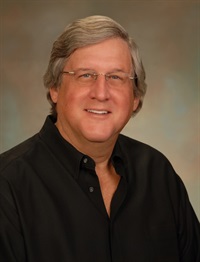AD24 Workshop 03 - Applying Hypnosis in the Treatment of Depression: An Emphasis on Skills, Not Pills - Michael D. Yapko, Ph.D.
- Average Rating:
- Not yet rated
- Topic Areas:
- Workshops | Depression | Experiential Therapy | Hypnosis
- Categories:
- Anxiety and Depression Conference 2024
- Faculty:
- Michael Yapko, PhD
- Duration:
- 1:55:45
- Format:
- Audio Only
- Original Program Date:
- Sep 14, 2024
- License:
- Never Expires.
Description
Applying Hypnosis in the Treatment of Depression is a short workshop that will emphasize the importance of utilizing proactive and well-targeted interventions when treating depression. How therapists think about the nature of depression and answer fundamental questions - such as what causes depression - naturally determine what treatment approach they are most likely to take. Likewise, how therapists think about the nature of hypnosis and its potential merits in treatment will shape their use of hypnotically based approaches. As we will discuss and you will observe in a video case presentation, there are some very compelling reasons to want to include hypnosis in the treatment of depressed individuals, couples, and families. There are things that no amount of medication can possibly address, hence the emphasis here will be on skills, not pills.
In this program, some of the topics Dr. Yapko will discuss include: • How the global pandemic turned the world into a “living laboratory” and highlighted vulnerabilities to depression • The “earthquake” in the depression world regarding the serotonin hypothesis • How one factor - expectancy - influences every phase of treatment • How our feelings can misguide us when making decisions, leading to poor decisions that make depression worse • The importance of experiential learning in treatment • Hypnosis as a vehicle for promoting automaticity: The merits of dissociation • The role of hypnosis in fostering emotional self-regulation skills • How global cognition affects perceptions, depression, and responses to hypnosis
Credits
Faculty

Michael Yapko, PhD Related Seminars and Products
Michael D. Yapko, Ph.D. (professional psychology, clinical specialization), is internationally recognized for his innovative work in applied clinical hypnosis, developing brief psychotherapies, and the strategic treatment of depression. He has been invited to present his work in more than 30 countries across six continents. He is the author of 15 books, including his most recent, The Discriminating Therapist. He is a recipient of numerous awards for his many contributions to the field, including the Milton H. Erickson Foundation Lifetime Achievement Award.


